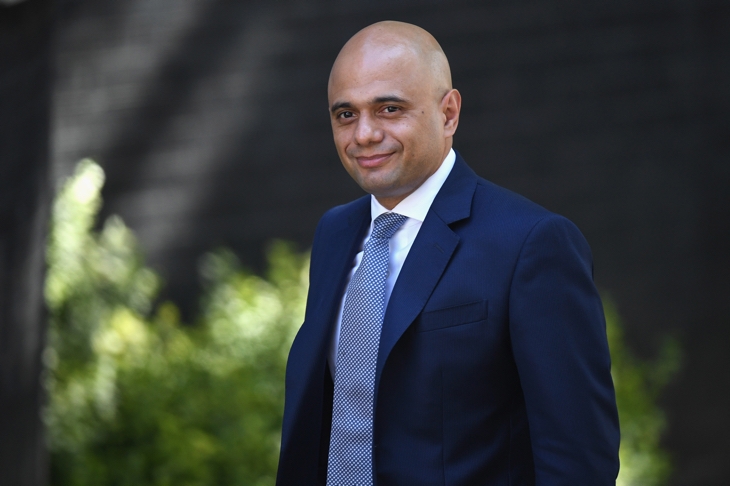On the Andrew Marr show yesterday, the Communities Secretary Sajid Javid suggested that the government should ‘sensibly borrow more money’ and take advantage of the ‘record low-levels’ of interest rates in order to tackle the UK’s housing crisis. He added that the lack of affordable housing was the ‘biggest barrier to social progress in our country today’ and that such measures would go some way to re-balancing social inequality.
Javid’s remarks also highlighted another crisis: that of the identity of the Tory party. It is true that the UK currently faces a severe housing shortage with the number of homes being built falling far short of the 200,000 target which is generally recommended by housing experts. However, Javid’s insistence that the Conservative government could easily borrow more money reinforces the notion that austerity was no more than an ideological experiment rather than an economical necessity.
David Cameron’s central message in the run up to the 2015 general election was that Britain had been living beyond its means and that belts across the country had to be tightened. People understood this and returned the Conservative party with a majority, entrusting them with the public purse. This message of fiscal responsibility was one the Conservatives continued to promote throughout Cameron’s premiership and even right up to the early budget plans as set out by Philip Hammond.
Yet in a flurry of panic after the humiliating and painful result of this year’s election and in a manic bid to match the utopian promises of the Labour party, the Conservatives continue to announce additional spending plans. In doing so, the party has moved further and further away from the fiscal restraint which was once its strongest card.
The conflicting messages from the government have left the public wondering what austerity was for. If we can borrow at such low interest rates and invest in vital public services and infrastructure, then why have local council budgets been cut by half? If we can borrow with such ease and at a sensible pace, why is it that per pupil funding has fallen in real terms? If we can borrow money without incurring tremendous debts, then why haven’t we been investing before now? And if it really is important to borrow money now, why can’t we elect a Labour party to do it rather than the Conservatives?
Over the last 10 years the Conservative party has thrived off of the perception that Labour could not be trusted with the economy. However, the comments made by Javid, and other Cabinet members, only serve to deconstruct the image of the Tories as sensible financial caretakers. More than this, it even gives credence to the fiscal plans of the Labour party. Tory plans for borrowing would likely never amount to the mammoth scale as set out by John McDonnell at the Labour party conference this year. But the Conservatives will undermine their own credibility by trying to keep up with the unviable promises laid out in the Labour manifesto.
The Tory party faces a difficult road ahead; it needs a nation of homeowners for its own survival. As such, the Tories will need to deliver more than the meagre 25,000 extra properties that the Prime Minister unveiled at party conference. But the dilemma doesn’t end there: the NHS also needs additional investment, as does social care and education. The list is endless. Meanwhile negotiations with the EU appear to be swallowing up all of the government’s attention – to the detriment of the domestic agenda – and the need for public investment is extremely high. If they hope to return to power in 2022, the Tories need to rediscover their identity instead of morphing into Labour light. Otherwise, Jeremy Corbyn’s prospects of making it to Number 10 look increasingly promising.
Georgia McShane is a freelance journalist who has written for The Sunday Herald






Comments